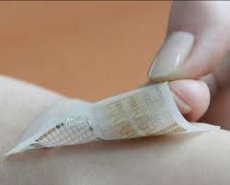Medical expert of the article
New publications
New development of scientists will allow diagnosing breast cancer with greater efficiency
Last reviewed: 02.07.2025

All iLive content is medically reviewed or fact checked to ensure as much factual accuracy as possible.
We have strict sourcing guidelines and only link to reputable media sites, academic research institutions and, whenever possible, medically peer reviewed studies. Note that the numbers in parentheses ([1], [2], etc.) are clickable links to these studies.
If you feel that any of our content is inaccurate, out-of-date, or otherwise questionable, please select it and press Ctrl + Enter.

At the University of Nebraska-Lincoln, specialists have proposed the latest development, thanks to which it will be possible to significantly increase the survival rate among patients with breast cancer. According to experts, due to the improvement of the diagnostic process, the rates of favorable outcome for breast cancer will increase to 94%. It is no secret that the earlier the disease is detected, the greater the chances of successful treatment for a woman.
The new technology, which has been dubbed "electronic skin", perfectly identifies breast lumps and determines their shape (even if the lumps are less than 10 mm). Specialists have managed to create a very thin, sensitive film from polymers and nanoparticles, with which doctors can obtain more accurate information about breast tissue.
For diagnostics, it is necessary to place the "electronic skin" over a certain area of the breast. Scientists have already tested the film using objects resembling a cancerous growth located between layers of silicone, which allowed them to somewhat simulate the breast and breast cancer. During diagnostics, it is necessary to press on the film with the same force with which a regular examination is carried out by a mammologist, but the film is more sensitive than the specialist's hands. As a result, the film was able to detect a 5 mm neoplasm located under a 20 mm layer of silicone.
In addition, the “electronic skin” is capable of diagnosing other types of cancer.
Breast cancer is the most common type of malignant tumor diagnosed among women. At one of the cancer oncology centers in New York, specialists believe that the presence of soy products in the diet can lead to accelerated growth of cancer cells. The specialists came to this conclusion after a new study, which involved 140 women with invasive breast cancer. Each subject had recently been diagnosed with stage 1-2 cancer, and 2-3 weeks after detection, each woman was scheduled for surgery to remove the tumor.
Half of the study participants additionally took a powder containing the soy protein genistein, the other part of the experimental group took a placebo. The course of treatment lasted 7-30 days before the scheduled surgical intervention. After that, the scientists compared samples of cancer cells taken before and after surgical removal of the tumor. As a result, the scientists found that there were differences in the expression of genes that influenced cell growth. Destructive processes were observed in the group of women taking soy powder. All the data from the study indicated that soy-containing products can accelerate the development of a cancerous tumor in the body. At present, specialists do not know whether it is possible to reverse the process provoked by soy.
An interesting fact was that 20% of the subjects who took soy protein had very high levels of this protein (genistein) in their blood. But it is quite difficult to predict the body's reaction to soy in each individual case. In the group of women who had high levels of genistein, there were cases where there were clear changes in the set of genes that affected the development, death and anomaly of cancer cells. Such changes affected the category of women who took more than 50 g of soy per day (approximately 4 cups of soy milk). The high-risk group may include women from Asian countries, since vegetarian dishes and tofu (soy curd) are most common there.


 [
[